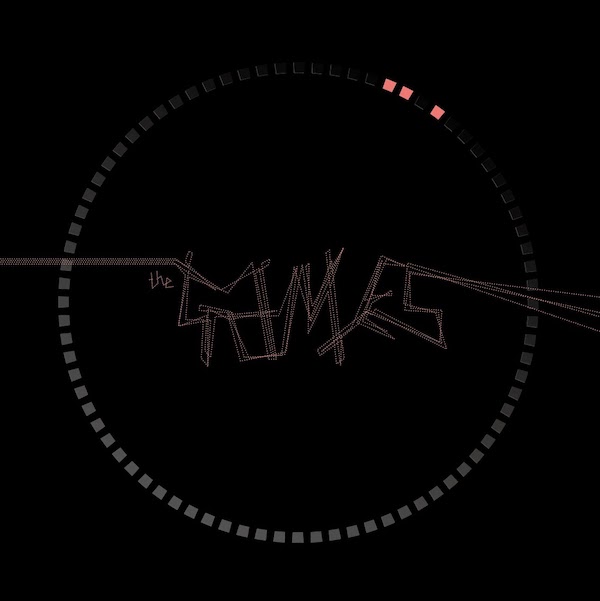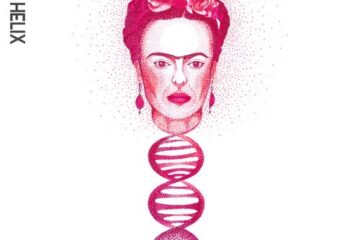Circus Games
The release of the album Circus Minimus by The Games sheds light on one of many of the lost bands that emerged from the Wirral and Liverpool music scene of the late 70s/early 80s.
OMD are perhaps Wirral’s most famous sons, but they in turn had taken influence from other contemporary bands of the time. Across the Mersey, the notable electronic band of the period was Dalek I Love You, an ever-changing line-up of players that had Alan Gill as the only constant (this was prior to his successes with The Teardrop Explodes). Dalek had demonstrated that electronic music could work live, lending inspiration to the pre-OMD Andy McCluskey and Paul Humphreys.
Meanwhile, another Wirral-based synth-pop outfit was to emerge at the start of the 1980s. The Games consisted of Brendan Coyle, Steve Knott and Colin Hughes – a trio that had eschewed the ‘coldwave’ element of synth-pop in favour of a more warmer pop approach to electronic music.
Steve Knott had actually been in the same class as Dave Hughes (OMD, Dalek I Love You, Godot) at Woodchurch High in Birkenhead and attended a synthesizer workshop during the upper sixth led by a teacher into the likes of Stockhausen and Tonto’s Expanding Headband. Knott, meanwhile, was into bands such as Kraftwerk and had showed Dave Hughes how to play a synthesizer when Dalek I Love You acquired one in 1977/78.
Their first single featured the perky pop of ‘First Law Of Games’ released in 1980. The single also featured the oddly melancholic tones of B-side track ‘Childsplay’, a haunting track with often cryptic lyrics, such as “British music – nothing is what it seems”.
The following year, The Games made an appearance with two tracks on volume 2 of Street To Street – the Liverpool compilation album that had previously featured early recordings by The Id and Echo & The Bunnymen. ‘Unrest In The Real World’ is driven by insistent electronic percussion for a quirky pop number. Meanwhile, ‘The Song’ makes use of synth chords and minimalist electronic effects.
For their live shows, The Games had also clearly been aware of the limitations of synth bands for stage performances. As a result, they utilised two dancers for their gigs (it hadn’t done The Human League any harm after all). Despite this, The Games were not achieving the exposure or success that their Wirral counterparts were enjoying.

1981 also saw the end of the then-current incarnation of The Games (although they got back together post-split for an one-off Granada TV appearance). Brendan Coyle went on to form Zephyr In The Swamp (with Colin Hughes) before then joining forces with Liverpool duo Some Detergents (which also featured former Dalek Chris Shaw). Meanwhile, Steve Knott continued The Games with a new line-up that consisted of Knott, Wayne Hussey (later Sisters Of Mercy and The Mission), Brian Rawling, Dave Hutchman and Dave Hughes (continuing his post-OMD years).
In the summer of 1981, the new line-up of the band (minus Dave Hughes, now pursuing his own electronic music project with Godot) recorded a new single via the Open Eye label. The staccato rhythms of ‘Dance This Way’ were a firm step into the world of electronic dance, a demonstration that The Games had a broad range in their musical arsenal. Meanwhile, B-side track ‘Love Canal’, offered up a more subtle, warmer side to the band. The Games had a final gig in November 1981, by which time Knott had started at Liverpool University to study geology.
As a band, The Games were unfortunately unable to achieve the successes that both their Wirral counterparts – as well as other contemporary outfits – had managed at the time. There’s a raw appeal to their songs, which suggests that under the guidance of a good producer The Games could have crafted some genuinely rewarding results from the material.
Meanwhile, German label Anna Logue has opted to release a collection of material culled from the various single releases and early demos (with the supervision of founding Games member Brendan Coyle). The result is Circus Minimus, an album that manages to put the songs of The Games into context, offering up a selection of minimalist electronic pop that boasts a certain naïve charm.
Thanks to Brendan Coyle and Steve Knott for additional information.
Circus Minimus is available now from the Anna Logue record label as a digital release or as a limited vinyl album edition of 400 copies, 140 grams black vinyl with extras.
http://thegames.bandcamp.com
http://www.annaloguerecords.com
http://annaloguerecords.blogspot.co.uk
This article originally appeared on the Messages website










